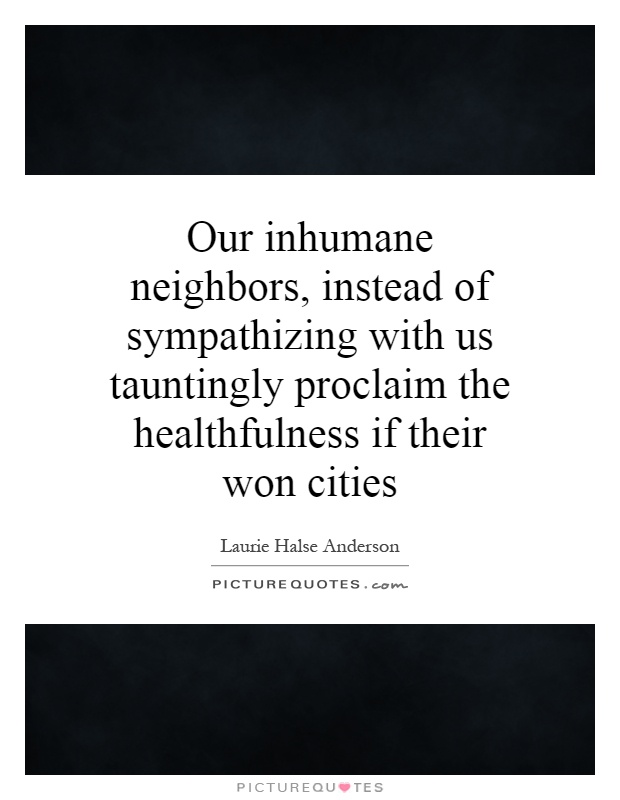Our inhumane neighbors, instead of sympathizing with us tauntingly proclaim the healthfulness if their won cities

Our inhumane neighbors, instead of sympathizing with us tauntingly proclaim the healthfulness if their won cities
In Laurie Halse Anderson's novel "Speak," the protagonist, Melinda, faces a great deal of isolation and cruelty from her peers after she calls the police at a party over the summer. Throughout the book, Melinda struggles to find her voice and speak up about what happened to her, as she grapples with the trauma of the assault she experienced.The quote "Our inhumane neighbors, instead of sympathizing with us tauntingly proclaim the healthfulness of their own cities" can be interpreted in the context of Melinda's experiences in the novel. Melinda's classmates and peers, who are meant to be her neighbors in the school community, are anything but sympathetic towards her. Instead of offering support or understanding, they mock and taunt her, making her feel even more isolated and alone.
The idea of the neighbors proclaiming the healthfulness of their own cities can be seen as a metaphor for the way in which Melinda's peers try to distance themselves from her trauma. They focus on their own lives and problems, refusing to acknowledge or empathize with Melinda's pain. This lack of compassion and understanding only serves to further alienate Melinda, making her feel even more isolated and alone.
Throughout the novel, Melinda struggles to find her voice and speak up about what happened to her. She is constantly silenced by those around her, who refuse to listen or believe her. This lack of support and understanding only serves to reinforce Melinda's feelings of isolation and despair.












 Friendship Quotes
Friendship Quotes Love Quotes
Love Quotes Life Quotes
Life Quotes Funny Quotes
Funny Quotes Motivational Quotes
Motivational Quotes Inspirational Quotes
Inspirational Quotes